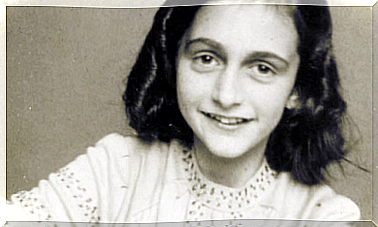35 Quote By Mahatma Gandhi: To Understand His Philosophy
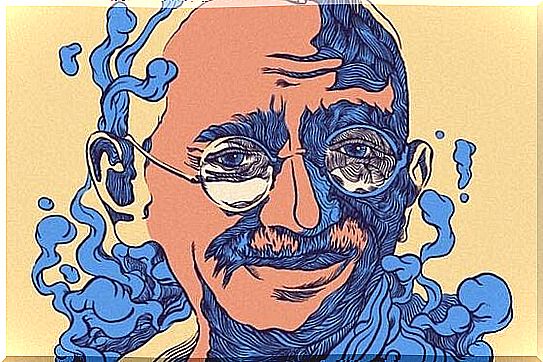
The quotes from Mahatma Gandhi still inspire people around the world. The eminent pacifist leader has had a significant impact on our way of thinking, with his spirituality, simplicity and philosophy of non-violence. His legacy is unlike any other. Few historical figures have inspired us as he did to live in peace and in accordance with what is true.
Experts in Mahatma Gandhi’s work say that his philosophy is extremely multifaceted and complex, and that it would fill several volumes just to sketch it out in rough outline.
But for those who want to immerse themselves in his work for the first time, Gandhi’s philosophy can be divided into 4 main parts; non-violence, Sarvodaga (socially committed Buddhism), Satyagraha (the strength of the soul) and the search for the truth.
These are four well-defined and interconnected areas where religious ideas harmonize with social ideas to form a clear whole and a hope: to drive humanity to believe in itself and persuade ourselves that we are capable of making positive changes in our society. This at the same time as we acquire greater moral growth.
These brief testimonies, expressed in simple phrases, are a consistent feature of several of his books. When we read them, we realize almost immediately that we are not dealing with someone who wanted to force a rigid doctrine on the world.
On the contrary, it is a series of principles that are set up to make us reflect and that can be applied to any area of our lives to help us understand that the basic things we need to break the cycle of violence are love, dialogue and respect for others. .
That is why we suggest that you read and reflect on them one by one in your own rhythm, without judging and with an open mind to learn something new. They are more than significant in our modern world.
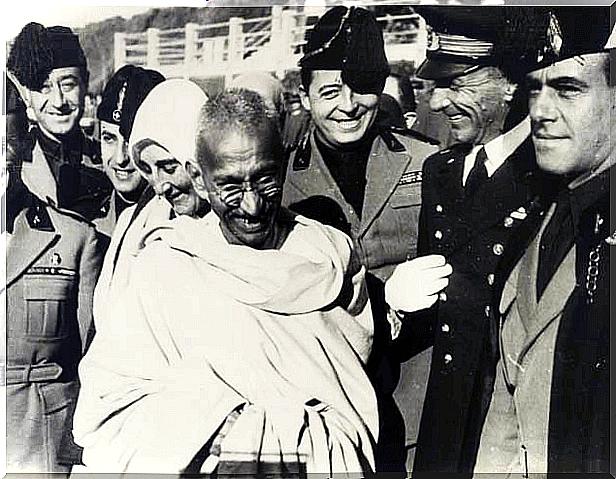
You must not lose faith in humanity. Mankind is an ocean; if a few drops are dirty, the whole sea will not get dirty
Ahimsa is a Sanskrit concept that gave rise to the non-violent philosophy and respect for all life that is so characteristic of Gandhi.
If there was anything that defined him, it was his unwavering belief in humanity. This hope is why he encouraged people to have a positive attitude full of tolerance, patience and indulgence and never to lose hope of humanity,
2. Violence is fear of the ideas of others
This is one of Gandhi’s most famous phrases and one of the ones that best defines the essence of his philosophy: we should not be afraid of things that are different. We should not be afraid of those who think differently or those who have different ideas. Fear of “the others” is a sign of weakness,
One eye for an eye and blinds the whole world
Violence feeds violence. Mankind must stop using aggression, revenge and hatred to communicate. The only violence does is perpetuate evil.
4. Hatred and intolerance are enemies of true understanding
Mahatma Gandhi advocated the importance of dialogue as a way of counteracting intolerance. Only those who can humbly speak to each other face to face can reach true understanding.
5. Poverty is the worst form of violence
One of Gandhi’s phrases is still extremely relevant. Poverty remains a structural violence, nothing changes here because the fact is that the problem is ignored.
6. I guess leadership once meant strength, but today it means getting along with people
A good leader does not force himself on his people with strength or violence, but rules with respect and sensitivity.
8. There are two types of power: one is obtained through fear of punishment, and the other through loving acts. Power based on love is more effective and permanent than the fear of punishment
For Gandhi, love was the way to truth. Once we have made this our ideal, we will be able to fight violence to make respect, coexistence and mercy the foundation of our society.
9. Non-violence requires double faith, faith in God and faith in man
For Gandhi, non-violence was the “great force” that must be accepted as one of the laws of life. It should impregnate our being and all our thoughts. It should be reflected in our actions.
11. The meaning of life is to live right, think right and act right
The principle of Satyagraha is essential to understanding Gandhi’s philosophy. This concept tells us that a person must live in harmony with himself, free from fear and prejudice and always hold on to the truth as the meaning of life.
12. Happiness is when what you think, say and do is in harmony
This is the principle of harmony between thought and action.
13. Be the change you want to see in the world
A Satygrahi is a person who is brave, has the principle of respect, love and truth in his heart and sees himself as capable of making this world a better place.
15. Justice by love is reconciliation, justice by law is punishment
Gandhi’s principles always have a moral connotation. One of the comprehensive principles is clear resistance to injustice, the development of a service-oriented spirit, self-denial and sacrifice. He always emphasized the importance of making love and simplicity our strongest allies.
Gandhi dreamed of a perfect society, free from all forms of exploitation, social differences, violence and injustice. Here are some quotes that reflect this higher purpose, a commitment we are all responsible for.

16. The future depends on what you do today
The future of our society depends on the small changes we make now. And whether we make the principles of love and justice our mission or not.
17. There is enough in the world to meet a man’s needs, but not his greed
The social goal, described by Gandhi as Sarvodaya, is a term he himself coined. It can be translated as the need to seek the well-being of all without exception. Thus, it is clear that greed has no place in the world when there are already enough resources and opportunities for everyone if we just make sure to distribute them.
18. An honest disagreement is often a good sign of development
Dialogue and its importance in rounding out sharp corners and differences are one of the basic doctrines of Gandhi’s philosophy. A respectful disagreement between two people is a way to achieve success in any way of life.
19. It is not enough for our ears to be satisfied, for our eyes to be satisfied; our hearts must be touched and our feet must be moved
A society that wants to change must be a society that is capable of action, change and of generating a movement that begins with the individual, with its own heart and which must then be reflected outwards in its actions. A good leader must therefore be able to give true hope to his people so that they will be able to make a change.
20. No culture can survive if it wants to be exclusive
The concept of Satyagraha can and should be practiced in any cultural environment, otherwise we are lost. Exclusion, mistrust, differences between religions, the hostile contradictions between my ideas and yours do nothing but build walls and sow the seeds of violence.
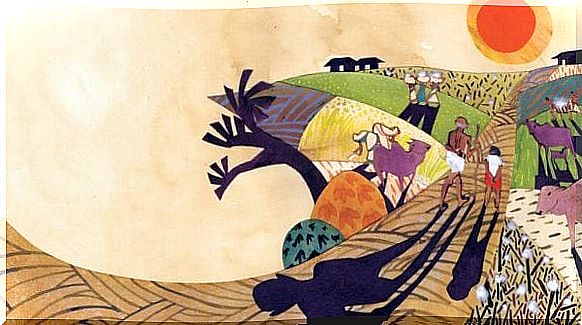
22. It is difficult, but not impossible, to do completely honest business
Moral strength is the engine that should drive every good society, starting from scratch in our homes and our small businesses. Therefore, every individual should be trained in honesty, humility and justice to create a productive citizen, who takes responsibility and fulfills his duties to create a better world.
23. A leader is useless when he acts against the impulses of his own consciousness
This is one of Gandhi’s most famous quotes. Something he advocated without fail was political decentralization to prevent power from falling into the hands of one person, a power that will almost always rise to his head.
Slowly but surely, the almighty leader seeks the self-gain. That is why Gandhi always advocated direct, participatory democracy.
24. Peace between countries must be based on love between individuals
Only through love can truth and peace be achieved in society. In fact, a constant idea in Gandhi’s philosophy is the concept we have that God is love and that it is the only way to weaken our enemy and the evil forces.
To achieve this ideal of a perfect society that Gandhi dreamed of, we must start with ourselves and those around us. If we respect and love our family, our neighbors and our society, we should also be able to do the same with the countries around us.
25. If we want true peace in the world, we must start with the children
To create a better society and a nobler future ruled by love and harmony, we must care for and educate our younger generations in the principles of peace and non-violence.
The real meaning behind the key concepts of Gandhi’s philosophy lies in their etymological roots. The word truth has its root in the Sanskrit term “Sataya”, and “sat” means “that which exists, that which is real”. So for Gandhi, the idea of truth is when thought and action interact and when a society has a moral code that encourages this higher purpose in its citizens.
Here are quotes that best represent that idea:
26. Truth remains even if it has no public support
This is one of Gandhi’s most famous phrases, and it refers to the idea that one must be able to uphold, guarantee, and defend one’s own truth even though the majority may be moving in the opposite direction.
28. Truth is clear in nature. When you remove the web of ignorance that surrounds it, it shines freely
The truth is always there, right before our eyes. However, we often allow ourselves to be manipulated and distracted by laziness, submission and even ignorance. Few actions require as much courage as finding the truth and acting on it.
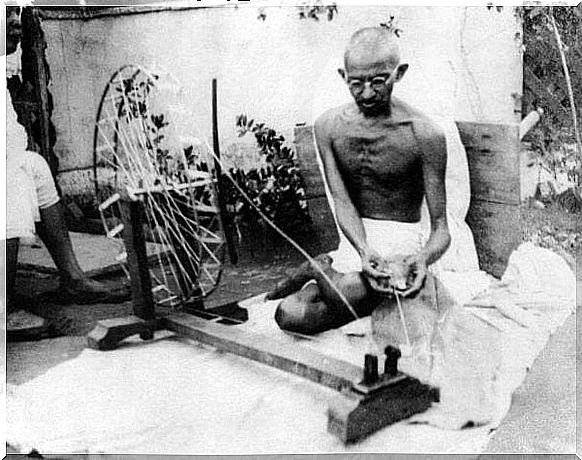
29. My life, my message
We said a while ago that “Satya” means true in Sanskrit, what is right, what exists. In turn , Gandhi taught that truth is meaningless if you think one thing and do the opposite. Therefore, the Indian pacifist leader lived in harmony with everything he learned, a humble life dedicated to others.
30. To believe in something and not live according to it is dishonesty
Here we can see the same principle repeated: the importance of living in harmony with our own truth, our own beliefs.
31. The truth prevails, even when there is no public support. It stands for itself.
Some claim that Gandhi was an idealist, and we can agree that this is true. But in any case, it can be seen in many of his texts and in these quotes from him that it is a very practical and useful idealism that can be applied to many different areas of our lives.
Each of us has at some point in our lives, whether at home or at work, defended a truth even though we had no support. Sooner or later, falsehood and injustice will break…
32. Truth never harms the house of righteousness
Even if we are afraid to tell the truth, when we do, if we do it in a place that is fair, it will always be respected and valued.
34. Anyone who wants to can hear his inner voice. It is within all of us
To get in touch with what is true and act accordingly, we must listen to our inner voice. Our internal dialogue should be constant and permanent. It is the only way to find the strength to stand up to what we find unfair and untrue.
35. The goal is truth and the way is love
The opposite of violence is love, and the only way to build a society capable of defending truth, capable of thinking and acting according to this principle is to choose the path of love, dialogue, equality, brotherhood and justice.
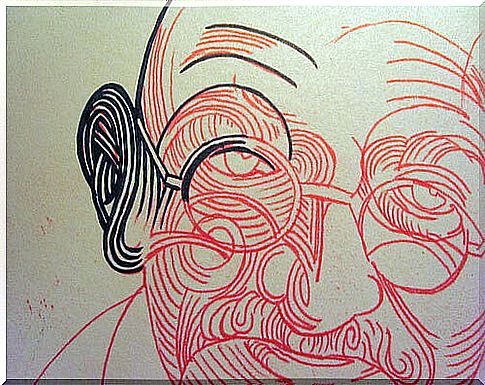
In summary, you can see that Gandhi’s philosophy is not just about morality, politics or religious implications. Above all , it is a compendium of knowledge that certainly originates from Indian culture but which is just as important and current today.
Bibliographic references:
Gandhi, MK (1993). An Autobiography: The Story of My Experiments With Truth. Boston: Beacon Press.
Wolpert, S. (2001). Gandhi’s Passion: The Life and Legacy of Mahatma Gandhi. Oxford University Press.
Gandhi, Mahatma (1989) “The words of Gandhi” Madrid: SIDDHARTH MEHTA EDICIONES
Gandhi, Mahatma (2016) “The food of the soul”. José J. de Olañeta








